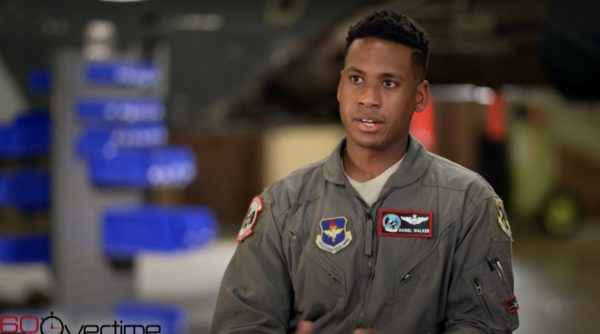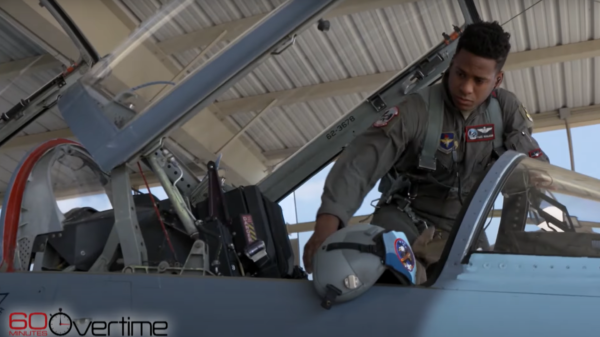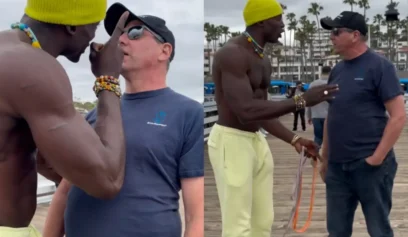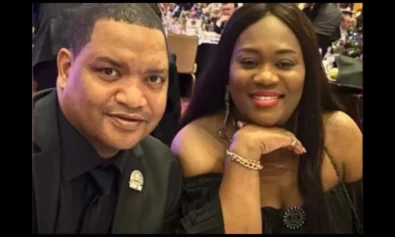A Black F-22 pilot told CBS news correspondent David Martin in a “60 Minutes” interview that a continued “uphill battle” against racism contributed to his decision to leave the Air Force after an 11-year-career. The broadcast interview aired on Sunday, March 21.
Major Daniel Walker said he had to moderate his behavior as a Black man in the military and didn’t lose sight of a mindset that his actions would be scrutinized early on.
“The way you stand, the way you walk, the way you sit, the way you speak. In what is supposed to be an objective field, [they] are subjectively rating you to others in the sort of unofficial grapevine of evaluation,” Walker explained. He believes he’s been treated differently than white pilots.

Walker, a Dallas, Texas native, comes from a legacy of stealth fighter pilots. He grew up hearing stories about his great-uncle Norman Scales, a Tuskegee airman who earned a Distinguished Flying Cross for his service to the country during World War II.
“At six years old, to have your dad’s uncle be a Tuskegee Airman and see the movie and hear about Uncle Scales…your family can’t help but talk about him…I felt at a very early age those hopes start to transfer to my shoulders.”
Walker followed in his great-uncle’s footsteps, and attended the United States Air Force Academy in Colorado before continuing on with pilot training.
But once in the ranks, Walker quickly learned how he was perceived by his white counterparts. “You’re big, you’re Black, with a deep voice. You’re intimidating,” he told Martin.
“This story is not uncommon,” Walker said. “I could very easily attribute this interaction to that action on my part, but when you compare stories from people you’ve never meant, and they’re almost identical, down to the individual, down to the comment, you realize these are not singular events in the person’s life.”
Walker said he was warned by Black veterans before entering flight school that the color of his skin would impact the way he was treated.
“They’re going to treat you poorly. When you wash out, they’re probably not going to keep you in the Air Force,” Walker recounted veterans warning him.
He forged ahead anyway, to “prove it could be done” and was assigned to pilot the Air Force’s top-of-the-line F-22 stealth fighter.

Not long after joining an F-22 squadron in Langley, Virginia, Walker was told he was too quiet, which he said led his associates to believe he thought he was “too good” to be there. Back in flight school Walker had been told he was too loud.
After 11 years of what he describes as an “uphill battle” of racism in the ranks, Walker departed, leaving the Air Force with less than 50 Black fighter pilots at the time.
“I had to really start taking serious my happiness, my well-being,” Walker said. “I asked myself, am I willing to continue fighting uphill and chance going back to a squadron where I have to manage myself this way and sacrifice these things personally, will I get anywhere?”
Walker has been accepted to Harvard Law School and plans to serve his country “in a different plane.”


